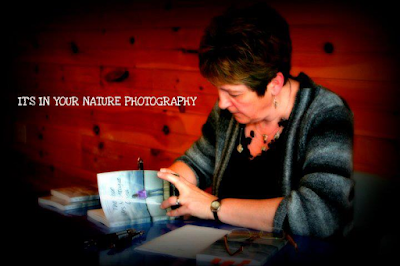I met Christopher at a reading in Miramichi. Discovering he published his debut novel last year, I was intrigued.
I now
own a copy which I’m looking forward to reading in the very near future.
I invited Christopher to be our guest this
week and share the news of his novel with the Story Behind the Story.
I’m a father of two crazy little boys, Gideon (3) and
Sullivan (1), and beast-dad to three dogs and a cat (Colby, Zelda, Stanley, and
Gemma). My wife, Annie, and I (et al) live on the gorgeous Tabusintac River
where we help manage my parents’ campground, Ocean River RV Resort. Summers are
spent working outdoors, tending the grounds, and winters are spent in relative
creative isolation. We moved here in 2021 from Hamilton, Ontario and the change
in pace and lifestyle has been incredible for our family and for our creative
work (Annie is a very gifted visual artist, creator, singer, and, not least of
all, mom). I’ve been writing for quite literally longer than I can remember and
fairly recently decided to “seriously” funnel my ambition and creative energy
into what has been my life’s passion. I took broadcast journalism at Mohawk
College in Hamilton and screenwriting at University of Toronto. Journalism was
fun but being awakened to screenwriting changed my life and really lit a fire
under the writer in me—I wrote
several screenplays before I got up the guts to write my first novel. With
Annie’s encouragement, I quit what I assumed would be my career for the
discernible future and got to work writing. In March of 2022 I published my
first novel, The Boy in the Canvas.
Working Title: The Boy in the Canvas
Synopsis: The Boy in the Canvas is a
coming-of-age / magical-realism / horror novel set in 1984. It tells the story
of twelve-year-old Joseph Ward who, after the death of his mother, is sent to
St. Theodore’s Academy, a correctional school run by a frightening headmaster.
During his time in the school, Joseph befriends Odilon Mercier and makes a
startling discovery—he is able to enter paintings and experience them as real
worlds. Using this newfound gift, Joseph plans to escape St. Theodore’s and its
sadistic staff. But the paintings themselves are inhabited by their own
dangers…
The Story behind the Story: The idea for The Boy in the Canvas comes from
a couple of places. The notion itself of someone being able to travel into the
world of paintings was something I’d had floating around in the creative ether
of my mind for a while. But all I had was the idea. There was no story, reason,
or purpose behind it. So, I scribbled it down somewhere in a short
paragraph—which is how I record most of my ideas—and forgot about it.
Sometime
later, my father had instigated an investigation into training schools,
institutions that were a popular place to stick “incorrigible youth” from the
mid-1950s until the late-1970s or thereabouts. He had been thrown in one of
these places where he, and countless others, had suffered some pretty horrific
stuff. He suggested to me one day that I write a movie based on his experiences
there. It wasn’t something I was keen to do—the notion of recreating the
real-life horrors that had occurred in those places made me ill. So, I let the
idea drop.
Then
my writing mentor gave me one of the most practical and memorable pieces of
advice I’ve received about writing. He said, “Write what scares you.”
I
took the advice to heart and it didn’t take long for me to apply it to my
compunctions towards writing about the training schools. And in the magical way
that few, if any, writers can explain, the idea of a boy jumping into paintings
came hurdling at me from out of the blackness at the edges of my imagination
and landed itself right on the doorstep of what I suppose is an avatar for
those wretched institutions.
A couple of years and dozens of rewrites later, The Boy in the Canvas saw the light of day.
Website: www.authorchristophersweet.com
A question before you go, Christopher:
Can you tell us about the
perfect setting you have, or desire, for your writing? Music or quiet? Coffee
or tequila? Neat or notes everywhere?
I prefer a closed
room, if possible. My current workspace is in a corner of our open basement but
I’m able create a closed-off atmosphere by putting my devices on Do Not
Disturb, turning off the lights, and using a warm-glowing lamp.
Music is
essential, though when I’m in the zone, I don’t notice it. I find it’s a good
buffer between my brain and everything going on in the world around me. I’m a
bit of a classical music nerd and listen pretty exclusively to that or movie
soundtracks when I write. I listen to a lot of horror and sci-fi movie scores.
Coffee is often
essential, especially since I typically write in the morning. If I’m writing
after eight o’clock, bourbon is preferred.
I’m a notes everywhere
kind of guy. By the time The Boy in the Canvas was finished, I had two walls
full of sticky notes, scraps of paper littering my desk, and several notebooks
and a few legal pads on my shelves and in my drawers just for that one project.
Thank you for being our guest this week, Christopher.
Wishing you continued success with your writing.
Thank you to all our visitors and readers.
What is your favorite genre to read?





.jpg)






.jpg)



.jpg)






.jpg)
